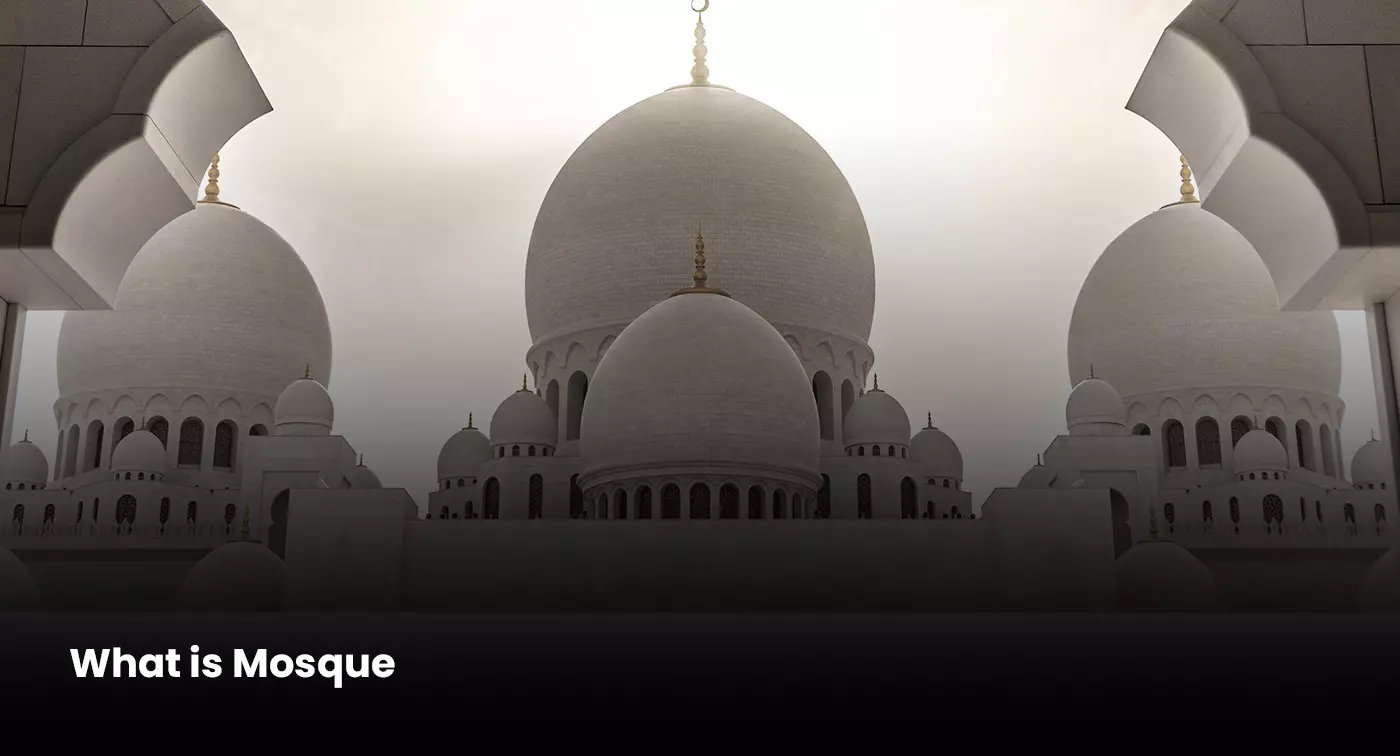What is Mosque – The Features Of The Muslim Prayer Area

The term “mosque” in English refers to a place of worship for Muslims. The word came from mosque’s Arabic word, “place of prostration.” As a sign of submission to God’s will.
Mosques are used for prayers, Ramadan vigils, funerals, and signing marriages. In the past, mosques have been used as community centers, courts of law, and places to learn about religion.
How Do Modern Mosques Look Like & Are Managed
Mosques still serve as places where people can learn about religion and talk about it. Similar to any other platform, mosques have been upgraded throughout the years. To make things easier for the community, they now have sophisticated mosque management software and other administrative features.
This technology has done a great deal to suit the demands of mosques and their visitors. All aspects of a mosque may be administered by Muslims, from a tiny prayer room to a significant cultural center. Thanks; to the mosque management system, it has helped mosques advance in terms of technology.
The Mosque booking system offers various services, too, like Mobile applications for mosques, donation kiosks, and donation systems for mosques.
People may donate straight now using this donation system for the mosque. To increase contributions, they might conduct many campaigns at once. It enables them to transact more quickly and securely.
Things to Remember When Visiting A Mosque
Is A Mosque A Muslim Place Of Worship Only?
Mosques are not only places of prayer for Muslims, but they also serve as educational institutions and gathering places for the local community. They serve as a place of prayer and a center of fellowship and learning for Muslims.
In What Time Are Muslims Required To Visit The Mosque?
Islam requires Muslims to pray five times a day in the direction of Mecca. The mosque is open for all of these times of prayer. However, worshiping together at the mosque is strongly recommended at the noon prayer, especially on Friday.
Midday prayers and sermons at the mosque are common on Fridays for Muslims. Weddings, burials, Ramadan festivities, and prayer sessions are also held in mosques. Additionally, they are often utilized as community centers or homeless shelters.
Who Is The Mosque’s Leader?
The Imam is in charge of the mosque; however, not all mosques have him. If a visiting Imam is unavailable, members of the mosque community may lead the prayers.
What To Wear When Visiting A Mosque
Both men and women inside the mosque should dress modestly, with loose-fitting clothing covering the arms and legs. Neither should wear shorts or sleeveless tops. A scarf for women is also a good idea. The wearing of a headscarf is not required at every mosque, but it is considered a symbol of respect. If you forget a scarf, don’t panic. As for children, they are free to wear anything they like.
Before entering the prayer area, you’ll want to make sure your socks or stockings are clean and dry. Shoe storage is common in mosques, and it’s usually located directly outside the main door.
What Does A Muslim Service Look Like?
Expect a warm reception! The practice of hospitality is highly regarded among Muslims. People are generally welcoming, particularly when they know you’re coming.
Make Sure Your Phone Is On Silent Or Turned Off.
Do not use your phone to snap selfies, send texts, or make phone calls at this moment in time. Once you’ve entered the prayer hall, you cannot converse or have dialogues.
Before entering the prayer chamber, Muslims undertake ablution or ceremonial washing. Men and women may wash their faces, arms, and feet separately in certain mosque restrooms. You may not have to perform ablution for visitors to enter the mosque. When you arrive your shoes will be taken off and stored for you.
There will be no pews or chairs in the prayer hall; instead, individuals will sit on carpets or rugs. People with impairments or the elderly may be able to sit on one of the accessible seats.
How to Carried The Prayers Inside The Mosque
During the prayer, everyone will rise, bend, prostrate, and sit in unison at various moments. To watch silently, you don’t have to participate. If you interrupt a Muslim’s prayer, they will not react until they are done. Before or after, you are welcome to ask any questions you may have.
You may be requested to sit towards the rear of the service since it is considered impolite to walk in front of someone praying.
Friday & Eid Sermon Charity & Free Meals Are Available In The Mosque
There are two portions to the preaching on Fridays, making the service longer. Prayers are often said at the end of the discourse. On the annual Muslim occasion of Eid, there are charity services, and free meals are served to everyone. Nowadays, mosque booking systems and donation systems for mosques are a great way to contribute to the community worldwide.
Summary
Mosques are not only the space for Muslims to pray. They serve a lot many religious and worldly purposes. A mosque is a center of education, communication, rituals, gatherings, charity, and helping and strengthening the community in time. A mosque is where Muslims and non-Muslims are welcomed and treated equally.

